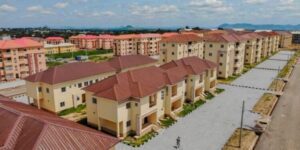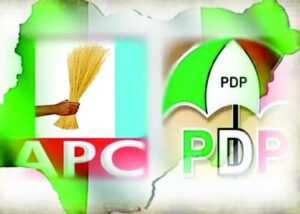Nigeria’s inflation-free rise
Nigeria’s rising inflation rate has been a source of concern to economy’s stakeholders, and indeed, Nigerians. The country has witnessed its eleventh inflation increase in recent times.
According to the National Bureau of Statistics (NBS), in December 2022, the inflation rate jumped from 21.34 per cent to 21.91 per cent in its recently announced February rate.
February’s rate showed an increase of 0.09 per cent points.
The NBS disclosed this on Wednesday in its report titled ‘Consumer Price Index (February 2023).’
In perspective, the figure showed that for the last eleven months, Nigerians have been paying more for the prices of goods and services.
Food prices, the most relevant in the CPI basket, climbed further to 24.35 per cent in February after jumping by 24.32 per cent in the preceding month.
The report comes as the country is beginning to witness a sign of relief after two months of naira scarcity occasioned by the naira redesign policy of the Central Bank of Nigeria, (CBN).
NBS said, “In February 2023, the headline inflation rate rose to 21.91 per cent compared to January 2023, which was 21.82 per cent.
“Looking at the trend, the February 2023 inflation rate showed an increase of 0.09 per cent points when compared to January 2023 headline inflation rate,” NBS stated.
Experts have revealed the solution to ending Nigeria’s rising inflation.
According to them, the CBN should review its policy framework to reduce inflationary pressure on the economy.
Also, the International Monetary Bank (IMF) World Bank, and experts have not shied away from warning Nigeria of things to avoid decelerating its rising inflation.
Chiefly is the reduction in the fuel subsidies budget or entirely abolishing it.
However, Nigeria has continued to play politics with its call to remove fuel subsidies.
NewsDirect urges the federal government to boost its revenue generation activities and improve ease of doing business.
The government needs to expand its tax network within the non-oil sector.
The government should work towards achieving a 95 per cent revenue target.
The foreign reserves are getting depleted consistently for payments of bonds due and other obligations while inflows of the needed foreign currency to save the Naira are not forthcoming. There is a high level of insecurity, unemployment, food inflation and the yet-to-fully-cool-off naira crisis.
The government, as a matter of urgency, should negotiate with creditors for rescheduling/ restructuring of our loan stock to free up funds for critical development.
The government must do everything to make Naira available for Nigerians to avert further economic disruptions.
The Federal Government should shelve the idea of additional loans for now and look inwards for the development of capital projects.
The policies of the CBN should be more attractive to foreign investors so that we can witness higher foreign inflow to shore up our reserves.
The CBN should also urgently look into the exchange rate regime to harmonise the official rate with that obtainable in the black market.




